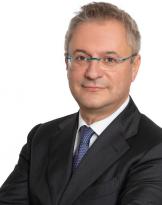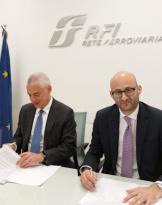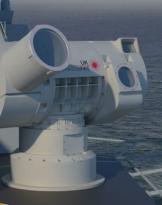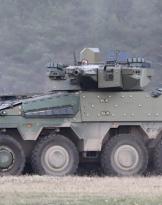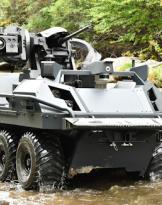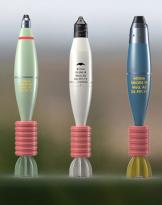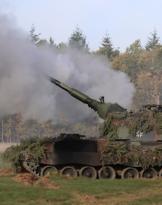Trucks and cars launched at full speed on the helpless crowd. After the attack in Nice, the terrorist attack called "car intifada" is the one that most frightens a Europe under the threat of global jihad. The news of the last few days confirms the alarm.
Conceived in Palestine and touted by Hamas as a method within everyone's reach and less complicated than the manufacture of explosive devices, however artisanal, to kill the Israeli "enemy", the car intifada has unfortunately taken hold in the West and forced the manufacturers of passive defense systems to run for cover.
Faced with the ever increasing demands for protection deriving from a very high level of insecurity perceived by the population, Italy has been able to give an answer that has already shown the first results and that comes from Tortoreto. To create a protective cordon around high-risk events, such as railway inaugurations or religious exhibitions, particularly attractive for Islamic terrorism, a group of engineers and technicians fielded a product whose name would be Publifor, but that by now is so identified with the company that produces it, to be commonly called "the Betafence".
The company Betafence, which has its headquarters in Tortoreto, in Abruzzo, is part of the homonymous Belgian group which is then one spin off of the historic company Bekaert. In general, it deals with fences also for private use and it studies all the possible perimeter security solutions consisting not only in “physical” barriers, but also in their active components, such as sensors for alarms.

The Italian plant, second in importance after that of the Ghent headquarters, deals with the entire production process of the Publifor / Betafence, from the arrival of the steel raw material, the wire rod, to the sale of the finished product. How this protection mode works, explains engineer Ruggero Carpentiere, Sales and marketing manager of Betafence Italia.
Betafence is produced entirely here in Tortoreto, where we have control of the entire supply chain, which allows us to adapt the fence to be implemented to any type of environmental and climatic situation. Our modules, which can be affixed to protect even temporary events, since they do not require excavations or works, but can be easily positioned and removed just as quickly, ensuring that any "breakthrough" by a truck does not exceed the few meters from where the protective bead is located. The benefits are easy to guess. By creating such protection, to ensure the right level of security, we can afford to deploy fewer members of the police forces.
Due to these characteristics, the Betafence modules have been used in events such as the G8 of L'Aquila, the protection of works for the Tav in Turin Porta Susa, the Expo in Milan and many other similar situations throughout Italy. But not many people know that even the entrance to Termini station, where tickets are checked for access to the internal area and then to the trains, is protected by the same type of system.

In this case, however, instead of being "networked", the modules are transparent, to create an idea of space and light without sacrificing strength. The modules are in fact tested as antitumulation systems and to resist possible breaches, explains Carpentiere.
Similar features have the cords used in the version for theaters operating in crisis areas, but in this case the product is American, coming from the Group's international factories and with customizations made in Tortoreto. This is the "Crash barrier", which guarantees that the breakthrough cannot exceed one meter from the point of impact according to the strictest tests of the American ASTM regulations. In this case the modules have a greater mass and cannot be removed, since solid and deep bases are necessary to ensure this type of performance. This other type of protection has been used, for example, for oil power plants such as Saudi Aramko Oil and gas.
Finally, for the military bases in war zones, the experts know the "Hesco bastion" of Hesco, a British company acquired by Betafence. Filled with adequate material, such as sand, they are able to absorb the impact of a possible heavy vehicle and to prevent the latter from reaching the objective, that is to the "heart" of the base, for a possible kamikaze attack. The sand is, in this case, an easy material to find in the theater of war and, moreover, it cushions the blows and has the benefit of not being the cause of further damage in the event of an explosion.





